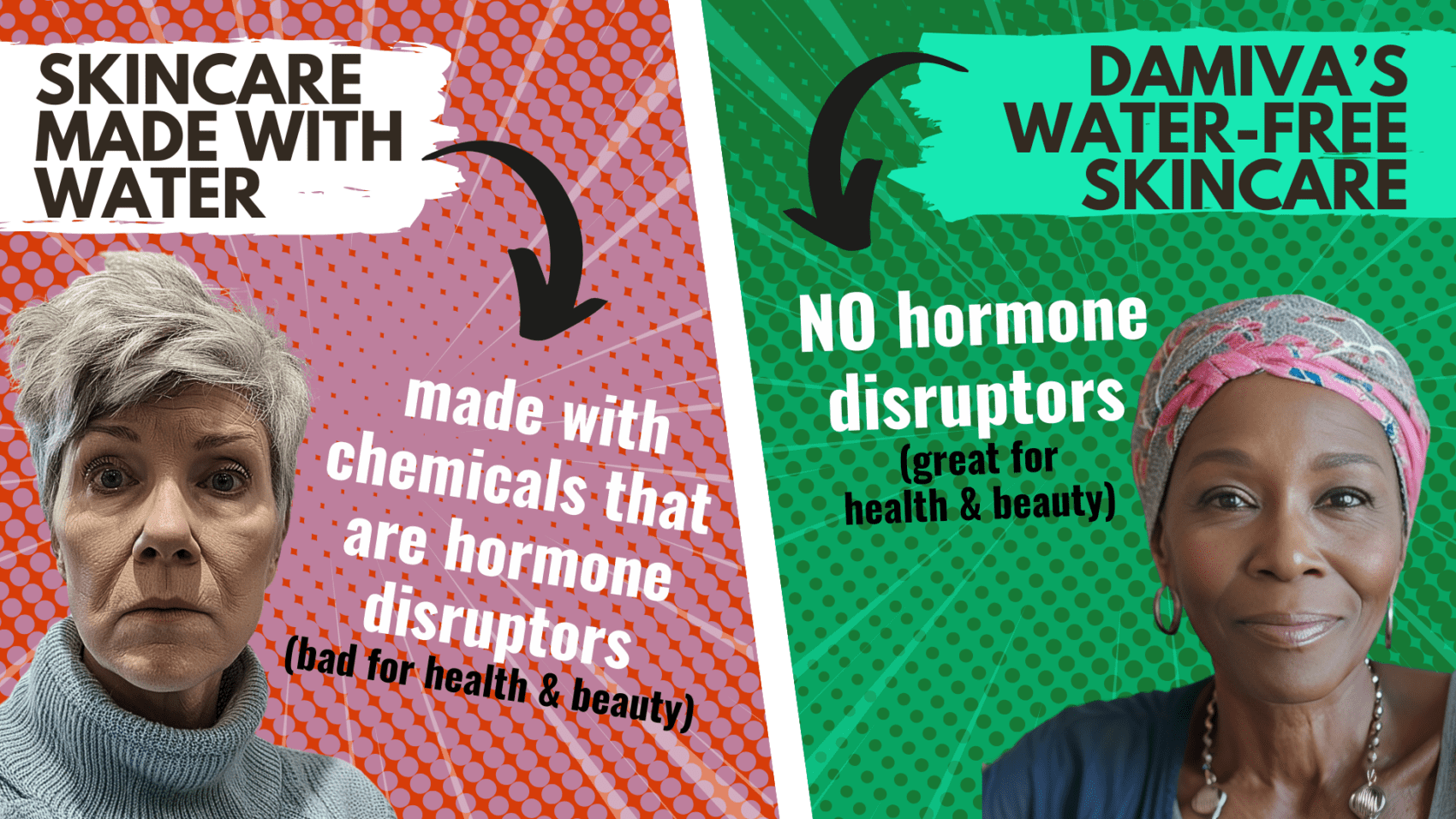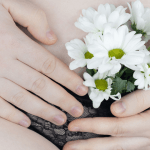Here are some questions about vaginal dryness that I received from friends, customers, family members, and which will be addressed below:
Questions Around Vaginal Dryness That I received
In this article, I will explore a topic vital to many women, yet often left undiscussed: vaginal dryness. This might sound a bit uncomfortable or even a little taboo to some, but it’s a pretty common issue that a lot of women deal with.
- Who is affected by vaginal dryness?
- Is vaginal dryness on the inside or outside?
- What does it feel like?
- Can you have dryness down there before your period? Or postpartum? Or during menopause? What about hysterectomy?
- What causes vaginal dryness? What’s the reason a woman cannot get wet?
- Can acne medication lead to dryness or chemo?
- Can dryness lead to vaginal atrophy? What should I do for dryness?
- What are the best products that you can use for vaginal dryness?
- What about intimacy and sex when you hare dry? What about your partnership?
- Which products should you not use when you have dryness in the vagina?
Vaginal dryness isn’t something that only happens to certain women. It can be a part of any woman’s life, whether you’re young, old, um, somewhere in between.
Imagine wearing a scratchy sweater that irritates your skin all day. That’s kind of what dryness down there can feel like. But it’s not as easy as changing your outfit. Plus, it’s not just about physical comfort. It can mess with your head, too, making you feel self conscious or stressed out, which is the last thing anyone needs. We’ll talk about why vaginal dryness happens, how to spot it, and most importantly, what you can do about it
Let’s get started and shed some light on this hush hush topic.
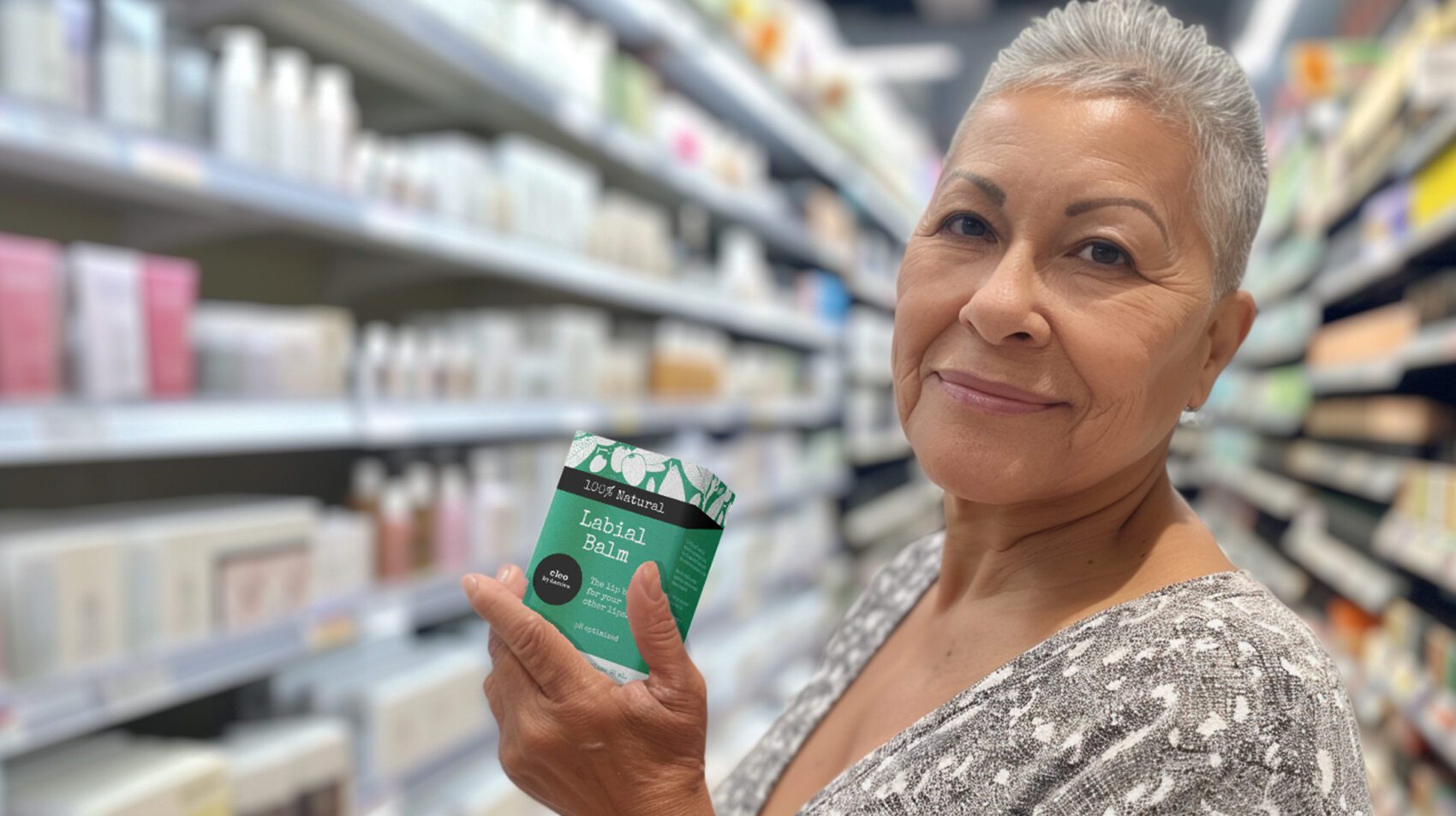
⭐️⭐️⭐️⭐️⭐️
“I needed a product like this for medical reasons. Thanks to this product I was able to do my physical therapy. The formula is very comfortable. It provides the right amount of lubrication. I will continue to use. I’m very happy to have found this because nothing else was working.”
Beatriz E, Cleo Customer
Understanding what Vaginal Dryness really is.
Think of it like a garden during a hot summer. Just like a garden needs water to stay lush and vibrant, the vaginal area needs a certain level of moisture to stay healthy and comfortable.
And vaginal dryness is like when that garden doesn’t get enough water. Things start to feel a bit dry and uncomfortable. This dryness can happen in two main areas on the outside and inside.
Vaginal Dryness on the outside
When we talk about vaginal dryness on the outside, it’s like having dry skin on the surface.
You might feel it right around the vaginal opening or on the labia. Those are the external parts. It’s a bit like having chapped lips. You feel the dryness every time you move or touch it.
Vaginal Dryness on the Inside
Then there’s vaginal dryness on the inside, which is a whole different ball game. Imagine a tube coated with a thin layer of moisture. That’s what the inside of your vagina is like. When it’s dry there, it’s not as noticeable at first glance, but it can be really uncomfortable, especially during intimate moments, or even just when you’re going about your day.
Along with the dryness, many women also experience vaginal itching and dryness. This is like having an itch you can’t scratch. This itching, coupled with dryness, can be quite the duo, making you feel irritable and sometimes even leading to discomfort during everyday activities.
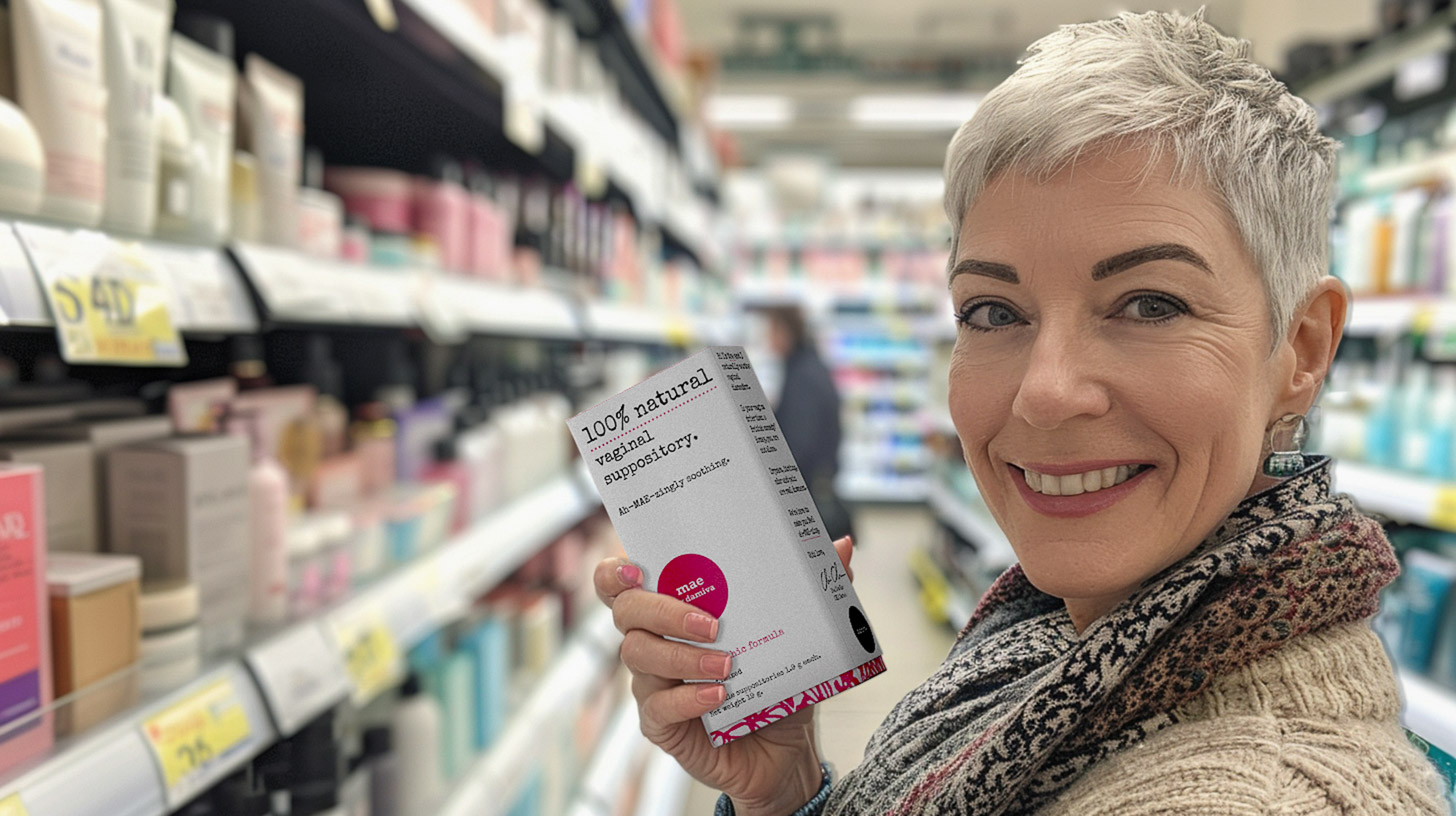
⭐️⭐️⭐️⭐️⭐️ “My biggest symptoms are GSM, and because of Mae, they are mostly addressed. I have lived Mae for almost 7 years, and I endorse it all the time.” Margaret C., Damiva Mae Customer
⭐️⭐️⭐️⭐️⭐️ “I’m in my 60’s and post menopause. My doctor recommended I try Damiva MAE, after taking me off hormones (due to developing cysts). I LOVE it. All natural, no hormones, Great vaginal moisturizer. Easy to insert and pleasant smell. So Thankful for MAE.” Paula, Damiva Mae Customer

Dryness of the Vagina at various stages of Life
Dryness down there can emerge at various stages in a woman’s life, and understanding these phases is crucial for managing this condition effectively. Let’s delve into how hormonal changes can influence vaginal dryness during different life stages.
Prior to menstruation, many women experience a sense of discomfort, which can be attributed to hormonal fluctuations. The varying levels of estrogen and progesterone during this time can lead to dryness before the menstrual cycle begins.
In the postpartum phase, the body undergoes significant changes as it adjusts post-pregnancy. Breastfeeding mothers produce high levels of prolactin, beneficial for milk production but potentially reducing estrogen levels. This decrease in estrogen can result in vaginal dryness during the postpartum period, a common yet often unexpected experience.
As women approach perimenopause and menopause, there is a natural decline in estrogen production. This hormonal change is a key factor in vaginal moisture levels. Menopausal vaginal dryness affects approximately 85 percent of women, with the body’s natural moisture levels decreasing due to lower estrogen. This condition can begin in perimenopause and persist through menopause.
Women who have undergone a hysterectomy, particularly if their ovaries were removed, experience a significant hormonal shift. This shift can lead to vaginal dryness, even if the ovaries remain intact, as the surgery may impact hormonal balance. This is a natural response of the body to the changes brought on by the surgery.
In each of these life stages, hormonal alterations play a pivotal role in the occurrence of vaginal dryness. We will now turn our attention to external factors that can also contribute to this condition.

External Factors: Possible causes for Vaginal dryness
Dryness “down there” isn’t solely a result of internal bodily changes; external factors, including daily lifestyle choices and environmental exposures, also play a significant role.
Medications
Medications are a major external contributor to vaginal dryness. This encompasses a wide range of common medications that may unexpectedly affect vaginal moisture. For example, certain acne treatments can alter hormone levels, impacting vaginal moisture. Similarly, specific birth control options and some cancer therapies might effectively address their primary purpose but inadvertently reduce vaginal lubrication. It’s a case of these medications performing well in one aspect but causing an unintended decrease in moisture levels in another.

Chemicals in Skin Care Products
Another crucial factor to consider is the chemicals found in skincare products. These chemicals act as hormone disruptors, altering the body’s natural hormonal balance. When absorbed into the system, they can decrease estrogen levels, vital for maintaining vaginal moisture. It’s not just the harshness of the chemicals but their interference with hormonal regulation that can lead to dryness.
Wrong Vaginal Hygiene Products
Lastly, the use of certain vaginal hygiene products, like douches and soaps, can significantly affect vaginal health. Many of these products contain ingredients that are overly harsh for the sensitive vaginal area. They can strip away natural oils and moisture, leading to discomfort and dryness. This is analogous to using a strong soap on the face, which can result in dry, irritated skin. Selecting gentle products specifically designed for the vaginal area is crucial to maintain the essential pH balance.
In summary, these external factors — medications, hormone-disrupting chemicals in skincare products, and inappropriate vaginal hygiene products — are critical to consider as they can all contribute to vaginal dryness. Being aware of these factors is the first step in addressing and managing this common issue.
Hormones, often the root cause of Vaginal Dryness
Understanding the root cause of vaginal dryness is crucial. At the core of this issue lies the hormonal background, predominantly influenced by estrogen, a key hormone in maintaining vaginal health.
Estrogen plays a pivotal role in keeping the vaginal walls healthy, elastic, and moisturized. While it works in concert with other hormones, estrogen is the primary driver in ensuring vaginal well-being. Think of it as the captain of a team, essential for optimal performance.
However, when there is a hormonal imbalance, particularly a reduction in estrogen levels, significant changes occur. This scenario is akin to a team struggling when its captain isn’t performing well. Reduced estrogen levels lead to thinner and less elastic vaginal walls, which then struggle to retain moisture. This reduction in estrogen is a major factor contributing to vaginal dryness.
By understanding that hormonal changes, especially those involving estrogen, are often at the heart of vaginal dryness, we can better approach and manage this condition. This knowledge is integral for women experiencing these changes, providing insight into how to effectively address and mitigate the issue.
Symptoms of Vaginal Dryness
Understanding these symptoms is key to recognizing and addressing the condition effectively.
One common symptom is an itchy sensation in the vaginal area. This discomfort can extend to intimate moments, potentially causing pain or distress, which should not be overlooked. Additionally, some women may experience a burning feeling or even slight spotting following intimate activities. For others, the sensation might be akin to the symptoms of a urinary tract infection (UTI).
It’s essential to distinguish between occasional dryness and more persistent, concerning symptoms. Occasional vaginal dryness might be comparable to a random dry patch on the skin – not ideal, but generally not a major concern. However, if the dryness is persistent, or if it causes significant discomfort or pain, it becomes a more serious issue, much like an ongoing skin problem.
Therefore, when considering the symptoms and causes of vaginal dryness, the focus should be on monitoring your body and recognizing what feels normal and what does not. Being attentive to these changes is crucial for effective management and seeking appropriate treatment or relief.
Vaginal Atrophy and Relationship to Vaginal Dryness
Let’s explore an important yet perhaps less familiar topic: the relationship between vaginal atrophy and vaginal dryness. Understanding this connection is key to effectively managing both conditions.
Vaginal atrophy can be likened to a once lush, healthy plant beginning to wither. This condition is characterized by the thinning, loss of elasticity, and increased fragility of the vaginal walls, often resulting from a decrease in estrogen. Estrogen is crucial for maintaining the health and vitality of vaginal tissues, just as water is essential for keeping a plant plump and vibrant.
Vaginal dryness often serves as an early indicator of vaginal atrophy, signaling the beginning of changes in the vaginal tissues. Without sufficient moisture, these tissues can become more prone to irritation and damage, leading to atrophy, similar to how dry skin can become cracked and sore.
Addressing vaginal dryness and atrophy involves tackling the root cause, which is often a lack of estrogen. There are also methods to naturally protect against these conditions. This may include using specific moisturizers or lubricants formulated to be gentle and supportive of vaginal health, akin to providing a withering plant with not only water but also the right nutrients to restore its health.
It’s important to remember that if you suspect you’re experiencing symptoms of vaginal atrophy or ongoing dryness, consulting with a healthcare professional is crucial. They can assist in determining the most effective treatment for vaginal dryness and atrophy, tailored to your individual needs.
Impact of Vaginal Dryness on Health, Mind, Emotions, Marriage & Partnership
Vaginal dryness significantly affects physical health, mental well-being, and relationships. Recognizing the breadth of these effects is crucial, as it underscores that this dryness down there is more than a minor inconvenience — it’s a condition that warrants serious attention and care.
From a health perspective, being dry down there goes beyond mere discomfort. It can lead to heightened susceptibility to infections. This occurs because the natural moisture barrier, which helps protect against infections, is compromised. Additionally, the associated discomfort can turn everyday activities into challenging endeavors.
Vaginal dryness can also profoundly affect mental health and self-perception. Women may grapple with concerns about living with this condition indefinitely, leading to diminished self-esteem and altered body image. This can extend to their personal lives, where women might avoid intimacy to escape discomfort or pain.

Furthermore, the impact on sexual health is significant. When you can not “get wet” down there, intercourse can be painful, detracting from the pleasure and enjoyment of the experience. This can, in turn, strain relationships, affecting both emotional connection and physical intimacy.
Understanding these multifaceted impacts is essential in appreciating the seriousness of vaginal dryness and the importance of addressing it with appropriate care and support.
Products and Treatments for Vaginal Dryness
Let’s explore various remedies and treatments for vaginal dryness, focusing on lifestyle adjustments and specific product choices.
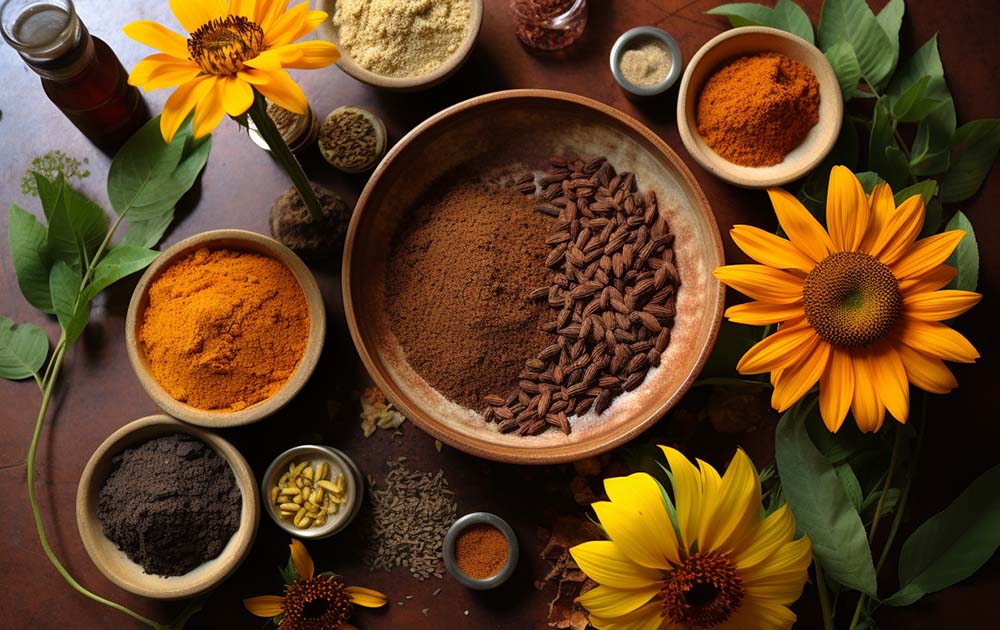
Lifestyle changes to help with vaginal dryness
Starting with lifestyle changes, simple modifications such as a balanced diet, adequate hydration, and stress management can significantly influence overcoming vaginal dryness. Consuming a diet rich in fruits, vegetables, and healthy fats supports the body’s natural lubrication process. Hydration is also a key factor in maintaining overall health and moisture levels.
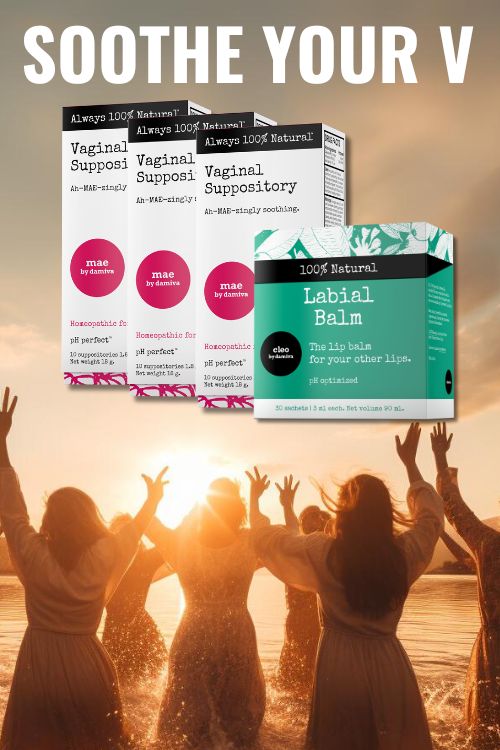
⭐️⭐️⭐️⭐️⭐️ “Love Damiva MAE. It was recommended by my doctor. Easy to apply, nice fragrance. I would definitely recommend this.”
Paula L, Damiva Mae Customer
⭐️⭐️⭐️⭐️⭐️ “This is a great product. It helps a lot with dryness and is so easy to use.” Anne W., Damiva Cleo Customer
The Best Vaginal Moisturizers for Vaginal Dryness
Chemical Free Vaginal Moisturizers are the best option
Turning to topical solutions, pH-optimized, water-free, chemical-free moisturizers are highly recommended. These specialized moisturizers for the vaginal area help restore moisture and maintain balance, much like applying a soothing balm to chapped lips. The pH level in the vaginal area is crucial, and using pH-optimized moisturizers ensures compatibility with the vagina’s natural pH, fostering a healthy environment and preventing irritation.
Use Water-free vaginal Moisturizers instead of water-based vaginal moisturizers
Water-free moisturizers are preferred over water-based alternatives as they provide lasting moisture. They don’t evaporate quickly, akin to using a heavy-duty moisturizer on dry skin in winter, versus a lighter lotion. Additionally, water-free moisturizers can be completely chemical-free.
Chemicals in Vaginal Moisturizers can act as Hormone Disruptors
The significance of choosing chemical-free products cannot be overstated. Many skincare and hygiene products contain chemicals that act as hormone disruptors, potentially affecting the body’s hormonal balance crucial for vaginal health. Avoiding these chemicals is like eliminating an unwanted ingredient from a recipe to maintain its integrity.
Do you know the 3 main ways how your body is exposed to harmful chemicals, which affect your hormones, your thyroid, health and beauty?
If not, it may be time to learn about them. It takes about 1-2 minutes.
We have a few suggestions how to avoid these silent health and immune system killers in our new guide.
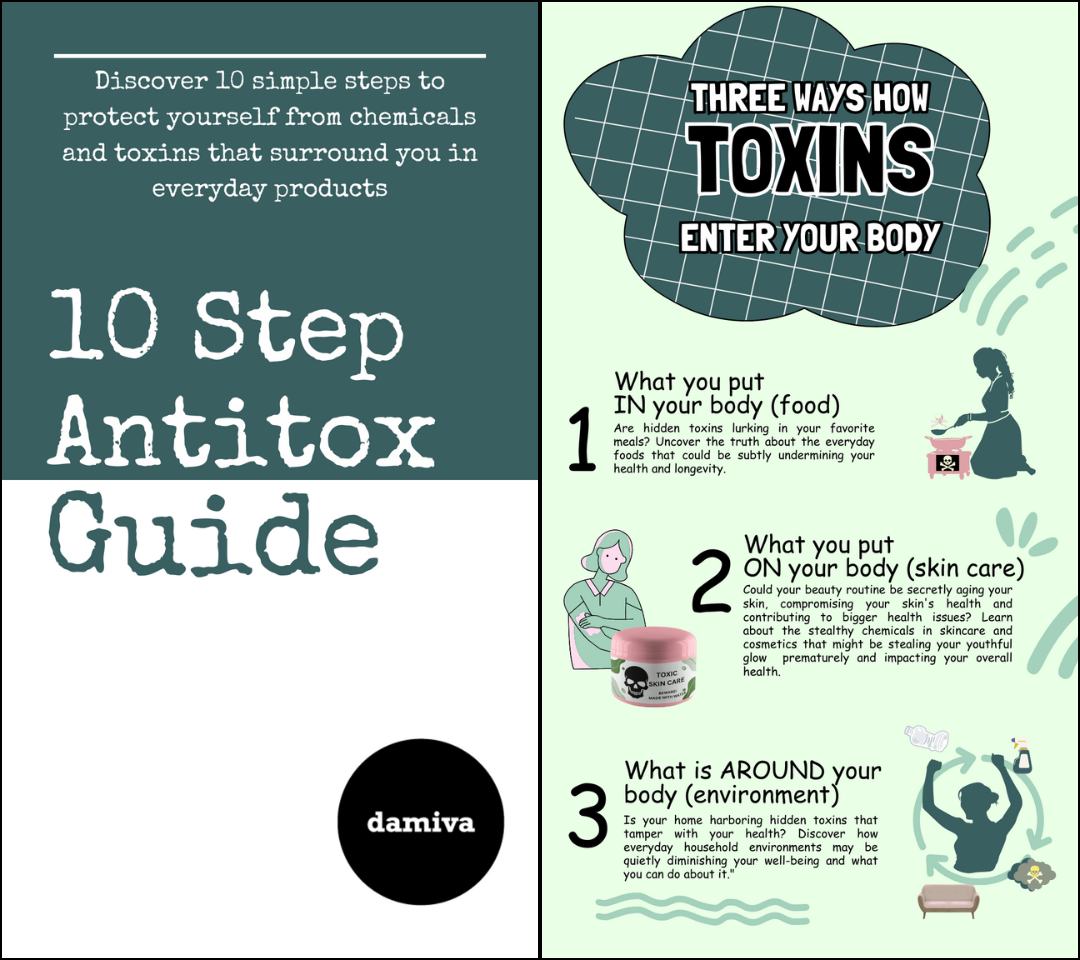
Chemicals can harm Your Vaginal Flora
Concerning the skin microbiome, which includes the delicate vaginal area, using chemical-free products is vital. The skin microbiome is an ecosystem of beneficial bacteria that protects and maintains skin health. Harsh chemicals can disrupt this microbiome, similar to how a harsh pesticide in a garden might eliminate not only pests but also beneficial organisms. By selecting chemical-free products, you support and preserve the natural protective barrier of the skin microbiome.

In summary, opting for chemical-free products serves a dual purpose: protecting your hormonal balance and preserving the health of your skin microbiome. Both are essential strategies in effectively managing and treating vaginal dryness.
Take an active approach to manage dryness down there.
Vaginal dryness is a prevalent but often under-discussed condition affecting many women at various stages in their lives, whether before menstruation, postpartum, or during menopause. It’s important to acknowledge that vaginal dryness isn’t just a physical ailment; it also has emotional and psychological impacts. Symptoms can range from itching and discomfort to pain, influencing both the body and mind.
The experience of menopausal vaginal dryness can be especially challenging due to the hormonal shifts associated with aging. While home remedies may offer some degree of relief, it’s crucial to recognize when professional guidance is necessary. Each woman’s experience with vaginal dryness is distinct, and treatments that are effective for one person may not be suitable for another.
Our message to you is to take an active approach in managing vaginal dryness. If you find this information helpful, please consider sharing it with friends who might also benefit. Your support through likes, shares, comments and subscribing to our youtube channel and here on the blog is greatly appreciated.



